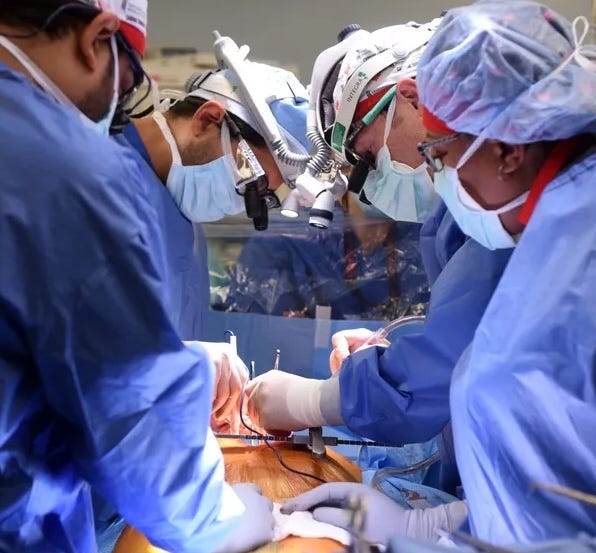Ingenuity Triumphs
In 2020, nearly 6000 people awaiting an organ transplant died before one became available. Organ donations substantially lag needs, and in some nations doctors have tried to get inventive in their efforts to save more lives.
As have some governments, by adding staffers to hospitals, by implementing "presumed consent," and by other means of encouraging more people to put themselves on donor lists.
That they continue to prohibit the most obvious remedy: allow people to sell their organs posthumously (or in the case of kidneys, whenever), is both a tragedy and a violation of the bodily autonomy both the Left and the Right pledge fealty to in different ways. In the case of kidneys, people can spend years or decades enduring thrice-weekly dialysis while waiting. In the case of hearts or lungs or livers, life itself is on the line. Yet, out of a combination of squeamishness, cherry-picking morality, and conjured fears of exploitation, that obvious remedy remains undiscussed.
Government prohibitions, both specifically as to organ sales and in general, can be viewed as obstacles placed in a downhill-flowing stream. Eventually, the water finds its way. There are black markets and "transplant tourism" available to those with enough money, the right connections, and enough risk tolerance (though death is a pretty big motivator).
There are also innovators seeking alternate remedies.
As was just witnessed. A 57 year old man, in need of a heart transplant and ineligible for the existing donor lists (that matter of 'eligibility' serves to mask the true demand for organs, by the way, meaning the problem is even bigger than reported) and out of other options had a genetically modified pig heart successfully transplanted into his chest. While the success of this experiment remains to be seen, it follows a pig-kidney transplant that occurred in September, an experiment performed on a brain-dead patient wherein the kidney functioned for 54 hours.
While we are obviously a long way from wholesale "xenotransplantation," such ingenuity will hopefully in due time permanently address the organ shortage.
That thousands will continue to die annually while researchers work to get this innovation right is a tragedy that can be laid squarely at the feet of the government. And, one that puts the lie to anyone who asserts a bodily autonomy argument (see: vaccinations, abortion, to name the two obvious ones) but supports the ban on organ sales.
The first human heart transplant took place in 1967. The recipient, Louis Washkansky, lived 18 days. Today's heart recipients average 5 years, and that figure will continue to improve.
We can celebrate this milestone in human ingenuity, but we should also ask ourselves why so many have had to die.




